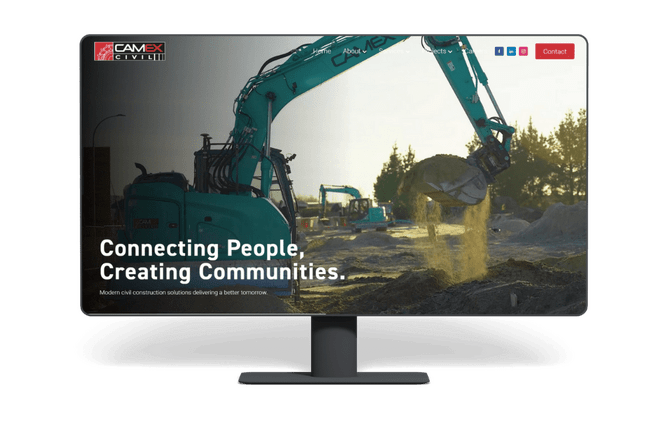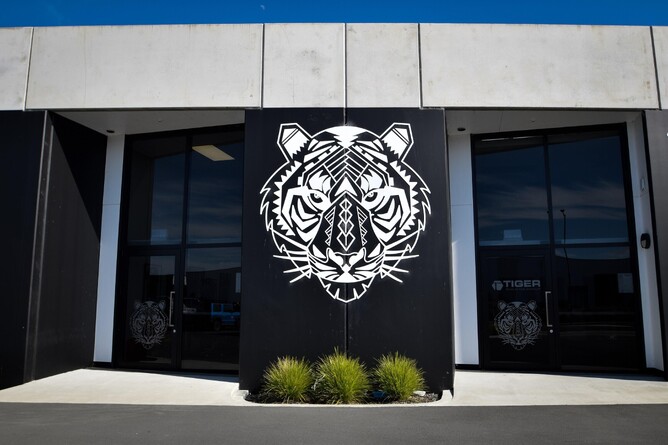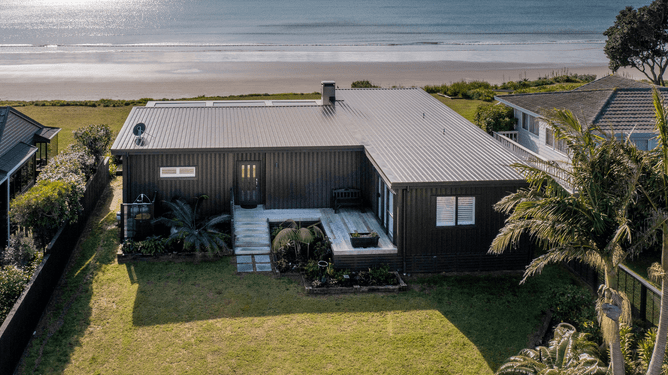If you build the things New Zealand runs on - roads, subdivisions, hospitals, warehouses, homes - your website should help you win work, not sit pretty.
What actually works
This guide is for civil, construction, demolition, labour supply, and trade businesses across Aotearoa, with a practical lean toward Waikato and Auckland.
Quick answer: the best construction websites prove capability fast, load quickly, speak to your regions, and make contact dead simple.
Use simple pages, real project proof, and clear calls to action.
Core rules for construction and civil websites
Make the work obvious - clear service pages by discipline and region, plus a fast projects library that shows role, scope, outcomes, and photos.
Show credibility - H&S culture, accreditations, fleet and equipment, key personnel, and real client quotes.
Cover locations - call out Hamilton, Waikato, Auckland, Tauranga and any other regions in headings and copy.
Answer tender questions - capacity, QA/H&S, environmental practice, programme control, and similar jobs completed.
Pair website + ads - build conversion-ready pages, then feed them with targeted Google Ads when you need the phone to ring.
Quick answer: project proof beats pretty pictures every time.
Show role, risks, outcomes, partners, and photos for each job.
Websites for civil construction and infrastructure companies
What matters: scale, smart structure across entities, and instant trust. If you handle subdivisions, earthworks, utilities, traffic management, or surfacing, the site should make that crystal clear.
Common mistakes: legacy themes, slow pages, thin project detail, and no obvious prequal path.
How SKD tackles it: we map entities and services up front, write copy that answers assessor questions, build fast project galleries, and set up clean enquiry routes for tender, ECI, or subcontract requests.
Websites for civil contractors in Waikato and Auckland
Separate pages for subdivisions, drainage, utilities, and earthworks.
Project templates that capture role, risks, constraints, outcomes, and partners.
Location signals - Waikato, Auckland, Tauranga - in headings, copy, and schema.

Quick answer: if assessors cannot see scale and process in 30 seconds, you are leaking points.
Lead with capability pages and job proof.
Websites for main contractors and builders
What matters: capability, programme discipline, H&S culture, and people. Decision-makers want to see who they will work with, not stock photos.
Common mistakes: generic about pages, minimal team profiles, and no board-ready proof.
How SKD tackles it: plain-English positioning, strong people pages, and case-led storytelling. Clear CTAs for tender packs, design-build, and negotiated work.

Websites for subcontractors and labour supply companies
What matters: reliability, coverage, and depth of workforce. Procurement wants confidence that you show up, follow H&S, and deliver on time.
Common mistakes: vague service blurbs and no signal of team scale or culture.
How SKD tackles it: labour-supply messaging that highlights supervision, inductions, SiteSafe culture, and scope boundaries. Enquiry forms tuned for labour orders and partnerships.

Websites for demolition and resource recovery
What matters: fast-response enquiries, proof of large jobs, and a clear environmental story.
Common mistakes: no separation between demolition disciplines, missing licensing details, and weak before-after evidence.
How SKD tackles it: service pages by discipline - demolition, asbestos, soft strip, concrete cutting - plus resource recovery content that shows tonnage diverted and process.

Emergency to civil scale - handling both worlds
Some firms run emergency response and civil project delivery. Your website should offer two paths - urgent action for emergency jobs, and credibility for long-cycle tenders.
Emergency path: phone first, short form, service area map, response window, and proof of similar call-outs.
Civil path: projects by sector, key personnel, QA/H&S, environmental practice, and bid contact.
Quick answer: split urgent and strategic journeys so neither audience gets lost.
Two paths, two CTAs, no confusion.
Platform and build approach that suits NZ construction
We design and build on Rocketspark for service businesses - fast, secure, and simple for your team to edit. We pair that with copywriting, SEO essentials, and AI-ready structure - clean headings, FAQs, and schema. SK Digital is a Platinum Rocketspark Partner, with 100+ websites built and 70+ five-star reviews.
DIY, freelancer, agency - which path fits?
DIY site builder
Pros: low cost, quick start.
Cons: looks generic, weak tender proof, hard to scale.
Best for: sole traders testing the waters.
Freelancer
Pros: personal service, fair price.
Cons: capacity limits, patchy process.
Best for: small brochure sites.
Traditional agency
Pros: full service, strong brand polish.
Cons: expensive, can over-complicate.
Best for: enterprise marketing teams.
SK Digital
Pros: built for NZ construction, strong copy and structure, easy in-house editing, ongoing improvement.
Cons: not the cheapest.
Best for: firms that want a site that wins work, not dust.
Quick answer: pick the option that fits your risk, speed, and tender targets - then hold it to results.
Price is only good if it performs.
How we work with construction teams
Clarity first - we map services, regions, and proof early, then write copy that answers tender questions.
Build for action - conversion-ready pages, tracked calls and forms, and simple contact options.
Improve monthly - website management means Kaizen: new landing pages, SEO updates, and content that keeps your site sharp.

Practical next steps
Short discovery call to confirm goals, services, and regions.
Proposed site structure, page list, and timeline.
We write, design, build, launch - then keep improving.



